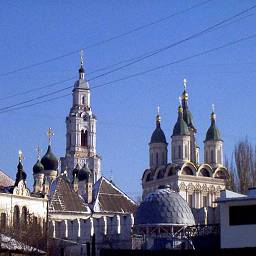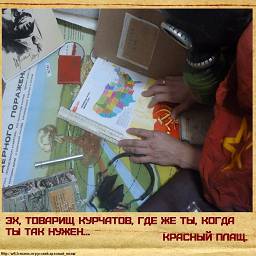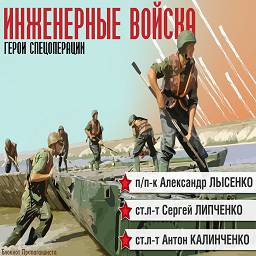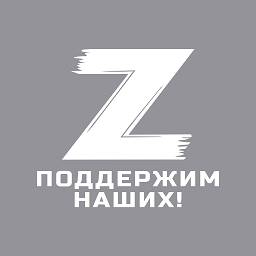Путь:
Quick Links
Language [ ENGLISH РУССКИЙ ]
Search
Подписка и соц. сети
New Materials
- Buy instagram followers 2020-09-09
- FISCAL FEDERALISM THE CANADIAN EXPERIENCE 2020-03-22
- Analysis of differentiation of socio-economic development of the Russian regions 2020-03-22
- Economic development in the Russian regions institutional and macroeconomic problems 2020-03-22
- Russias North Economic Problems of Development 2020-03-22
- Problems of Fiscal Federalism in Russia 2020-03-22
- REGIONAL ASPECTS OF THE FEDERAL ECONOMIC POLICY 2020-03-22
- THE TELEVISIONS PROJECT 2020-03-22
- Journeys into History Through the Future 2020-03-22
- Artists Bring the Computer to Life 2020-03-22
- Culture in the Upcoming Millenium 2020-03-22
- What is a work of telecommunicative art 2020-03-22
- Tatiana Didenko Executive Producer 2020-03-22
- ABC Amber Conversion and Merging Software 2019-12-08
- Human-Rights Journal Finds Survival Hard in New Russia 2018-03-12
Картинка недели
Union maniac
Evaluation section:
0
Union Punk is a wide circle of like-minded people who respect the era of the Soviet Union.
In many cities and countries of the former USSR there were fans who willingly share their memories with the same fans.
Proud of old times, constantly compare reality with the past.


Категории
chairman of the Foreign Affairs Committee of the State Duma of the Russian Federation, supports the ratification of START II
Date of publication: 2017-11-26 23:29:54Дата модификации: 2017-11-26 23:29:54
Views: 1597
The article is timed to the date: 1996-01-01
Other articles related to: Date1996-01-01 Articles for: Year1996
Author: admin
CONTENTS
Vladimir Lukin, chairman of the Foreign Affairs Committee of the State Duma of the Russian Federation, supports the ratification of START II despite all the complexities of the treaty. In any case, he believes that after the elections the treaty will be ratified. Viktor Iliukhin, chairman of the Security Committee of the State Duma of the Russian Federation, is of the opposite opinion. He believes that the treaty gives the United States more advantages than Russia, and that for a number of reasons Russia should not ratify START II right now. Among these reasons, he cites the threat of NATO's expansion to the East and the U.S. desire to review the ABM Treaty. In addition, under START II, Russia will have to destroy its most effective strategic weapon - its MIRVed missiles. There are also viewpoints of independent experts regarding the ratification of START II.
The Editorial is also devoted to the ratification of START II and U.S.-Russian relations. Yaderny Kontrol editor, Vladimir Orlov, comes to the conclusion that the treaty is in Russia's long-term interests. Its ratification, however, is not the end point in the U.S.-Russian dialogue on arms control, it is just the path to START III, which will not only provide an opportunity to destroy outdated weapons on the basis of parity, but also to control scientific capabilities in the area of high accuracy weapons. The new treaty should stipulate for confidence-building measures between Russia and the United States.
"Only 25 percent of the Russian border control points are equipped with special devices for preventing nuclear smuggling," Nikolai Kravchenko, head of the sector for customs control over nuclear and radioactive material of the State Customs Committee (GTK) of Russia, believes. In his interview with Vladimir Orlov, Yaderny Kontrol's editor, he said that under the existing forms of control, nuclear and radioactive material could be smuggled legally and with almost no risk at all if the material indicated in a license is substituted or its declared number is increased. The Yantar stationary monitors designed in the Aspekt research center (Dubna) and aimed at narrowing channels of smuggling were officially tested in Los Alamos and were highly evaluated by U.S. researchers. The monitors are planned to be installed on walking, car and railway control points.
Space-based systems of monitoring proliferation of nuclear weapons are described by Lyudmila Belova, Oleg Dubenkov and Alexei Kochkin from the Machinostroitelny [Machine-building] research association. Considering the possibility of land, air and space control, the authors focus on the latter. They look into various types of distant monitoring equipment. As for the requirements of technical means for monitoring, the authors give opinions of foreign experts: space monitoring with technical means based on various physical principles have and will continue to have a leading position in obtaining reliable and operative information regarding military, economic, scientific and technical capabilities of states and their use in international arms control.
Activities of the Gosatomnadzor (The Federal Nuclear and Radiation Safety Authority of Russia) in the area of nuclear and radioactive security are described by its official Nikolai Filonov. Poor economic conditions at enterprises, unpaid wages, outdated equipment, and dismissal of qualified workers has resulted in a lower level of readiness to prevent radioactive accidents and in an increased chance of radiation danger because of accumulated radioactive waste. In 1995, there were 10 accidents at fuel cycle enterprises, four of which had radiation aftermath. Solution of the problems is delayed because the law "On Radioactive Waste Management" has not yet been passed. Along with its monitoring activities, Gosatomnandzor issues licenses for nuclear and hazardous-radioactive activities. The author believes that if 70 percent of all payments for licensing were spent to improve the work of Russia's Gosatomnadzor, control and monitoring would be considerably improved.
Gennady Khromov, an arms control expert and an official of the Ministry of Defense Industries, analyzes advantages and disadvantages of the missile technology control regime (MTCR) and peculiarities of Russia's participation in this regime. In his opinion, Russia's decision to join the MTCR is useful because, first, it will lift U.S. unilateral sanctions - which, if anything, are unclear regarding Russian missile exports; it will be the other state-parties to the MTCR who will decide on measures to be undertaken against Russia. Second, since the MTCR is a closed arrangement and deliveries among its parties are not restricted, Russia could increase its missile-related exports to the parties of the regime. Russia will also have the possibility to improve the MTCR. However, the author states that the best this regime can hope for is «to delay the development of missile programs in the Third World countries,» but not to solve the problem. Mikhail Kozlov, an official from the Federal Currency and Customs Control Service, tells about the history, structure and functioning of the MTCR. He also considers the question of why the MTCR was established as a regime, not as a treaty. He dwells on the role of sanctions in the MTCR system. Much attention is given to the membership mechanism of the MTCR and to its prospects. In recent years, priority for entry was given to the main exporters of missile equipment and technologies. According to the author, «in the coming two to three years the policy of the MTCR will hardly undergo any fundamental changes.»
Is there the possibility that a nuclear-weapon-free zone will be created in Central Asia? Guzel Taipova, a journalist from Kazakhstan, and Vladimir Chumak from the Institute of Strategic Studies of Ukraine analyze the situation in Central Asia. The authors consider positions and strategic interests of the principle states debating the issue - Kazakhstan, Uzbekistan, Russia, China, Pakistan, Iran, Turkey and the United States - and come to the conclusion that these states should support the recently popularized idea of creating a nuclear-weapons-free zone as an instrument for securing nuclear nonproliferation on the continent and as a key element of the Asian security structure. The authors believe that Kazakhstan will have to sponsor the idea of a nuclear-weapon-free zone in Central Asia for a number of reasons: its geostrategic location between the two nuclear-weapon powers - Russia and China - with an extremely unstable situation in the Russian Federation and China's aspirations for dominance in the region, and the Middle and Near East countries' obvious interest in Kazakhstan. The «Data Base in Print» section publishes the Tlatelolco Treaty on banning nuclear weapons in Latin America. This document opens a series of publications of zonal treaties.
The «Document» section gives the final part of the full text of the Federal Law on the Use of Atomic Energy (for its beginning see Yaderny Kontrol, # 14-16).
Yaderny Kontrol's readers are offered a model of export control laws, which was prepared by the Lawyers Alliance for World Security (LAWS) and which contains the main definitions of export control-related terms. Within the framework of the program «Law-Making Security Interests: Development of Export Controls in the NISs», LAWS provides legal, technical and diplomatic assistance in drafting laws on export control.
In his book «Russia in Its Search of Security Strategy. Problems of Security, Arms Limitation and Peacemaking» edited by Alexei Arbatov, Ambassador Roland Timerbaev points out that "without Russia it is impossible to make any progress regarding further nuclear weapons reductions, to conclude a comprehensive test ban, to draw an agreement on the cut-off of weapons-grade fissile material production, and to strengthen the nonproliferation regime." The book gives a comprehensive analysis of practically all aspects of the problem of Russia's geostrategic stability.
Evaluation of the document:
0
Article description: Vladimir Lukin, chairman of the Foreign Affairs Committee of the State Duma of the Russian Federation, supports the ratification of START II despite all the complexities of the treaty.
Albums:
Other articles of the section: Union maniac
Previous The issue focuses on the results of the Moscow G-7 plus Russia Safety and Security SummitNextPolice Confirm Moscow Riot but Deny Deaths
Similar articles:
Nested sections



_косплей_совьет_панк.jpg)

_стенгазета_союз-маньяка.jpg)
_юмор_в_стиле_союз-маньяк.jpg)


